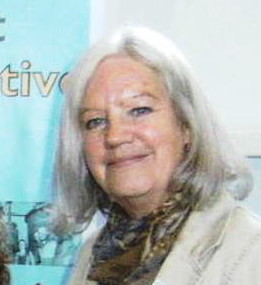Co-operative skills aren’t just for co-operatives! We believe that these skills – developed in co-operatives of all kinds – can be useful for any groups of people wishing to work together to solve problems or achieve social goals. Of course we consider the co-operative to be the best model for any kind of enterprise, with social aims at its heart and democratic ownership and control its body – but our aim is to promote co-operative ways of working throughout all sectors of the economy.
Co-operantics Mission
To improve co-operative skills* in co-operatives. To promote and develop cooperative skills throughout all sectors of the economy and sections of society.
*Co-operative skills include communication, running effective meetings, decision-making, coping with conflict, negotiation and team working.
Co-operantics can save you money!
Through learning and practising co-operative skills, workers will be able to reduce workplace tensions and solve conflict, thus saving personnel time and avoiding the need for costly employment tribunals.They will learn how to:
- give and receive criticism assertively
- cope with the inevitable conflicts that arise and avoid unnecessary conflict
- use techniques of principled negotiation
- make it easy for new members to participate
Other benefits include meetings that are more decisive and more amicable, leading to decisions people will commit to and won’t subvert
How we work:
Our half-day workshops are highly participative and interactive. It’s accelerated learning with materials available for download in advance. Topics include communication, meetings and decisions, conflict management, techniques of principled negotiation and team working.
Facilitation
We are often asked to facilitate meetings in co-operatives where there has been a breakdown of communications of some kind, and the co-operative needs someone who will be neutral but who also understands the dynamics of co-operative working. We also facilitate members’ days, team-building events and participative planning events.
Downloads
Throughout this website there are free downloads – tools, tips and techniques for improving co-operative working. These will be of special interest to anyone attending a workshop, since they will be able to download and read them beforehand.
Co-operantics mission:
To improve co-operative skills* in co-operatives. To promote and develop cooperative skills throughout all sectors of the economy and sections of society.
- As part of the UK co-operative movement Co-operantics will abide by International Co-operative Principles and Values.
- We will always respect our clients and act in their best interests, seeking to build capacity rather than developing dependency, whilst recognising that it may be in our clients’ interests to utilise our skills rather than acquire those skills themselves.
- We will always respect client confidentiality.
- Co-operantics Associates will declare any conflicts of interest where they exist
- We will at all times abide by Co-operantics Equality and Diversity Policy, setting and monitoring goals and targets which will be assessed annually.
- We will at all times abide by Co-operantics Environmental Policy, setting and monitoring goals and targets which will be assessed annually.
*Co-operative skills include communication, running effective meetings, decision-making, coping with conflict, negotiation and team working.
We have a compliments and complaints policy if anything goes wrong!
About us

Kate Whittle has been working in the social economy for over 30 years, both in the UK and in the Dominican Republic, where she worked as a volunteer with a federation of co-operatives in the Cibao. She has worked with co-operatives of all kinds, social enterprises, voluntary organisations and co-operative development bodies. On her return from the DR, Kate achieved an MA in Post Compulsory Education and Training from Greenwich University. From 1999 to 2004 she was an Associate at the Co-operative College. From 2003 to 2005 she served on the Board of the Phone Co-op. In 2003, together with Bob Cannell and David Dean, Kate founded Co-operative Business Consultants aiming to promote participative and co-operative management. Together with Nathan Brown and Alex Lawrie of Somerset Co-operative Services, she developed and taught the Understanding Co-operative Enterprise Unit of the ILM accredited VRQ Level 5 training programme for UK co-operative business advisers. Kate also acted as the Internal Verifier for Jim Brown’s ILM accredited VRQ Level 5 Certificate and Diploma in Social Enterprise Support. Kate was commissioned by Co-operatives UK to develop and run Co-operative Skills Seminars for UK worker co-ops, designing and teaching the Strategic Planning and Managing Change seminar. The training was very well received by some of the UK’s largest worker co-ops: Suma, Infinity, Delta-T, Essential Trading and Unicorn Co-operative Grocery.
Kate is a member of Midcounties Co-operative, GO-OP Co-operative, The Bristol Cable and Great Western Credit Union.


3 thoughts on “About Co-operantics”
Comments are closed.